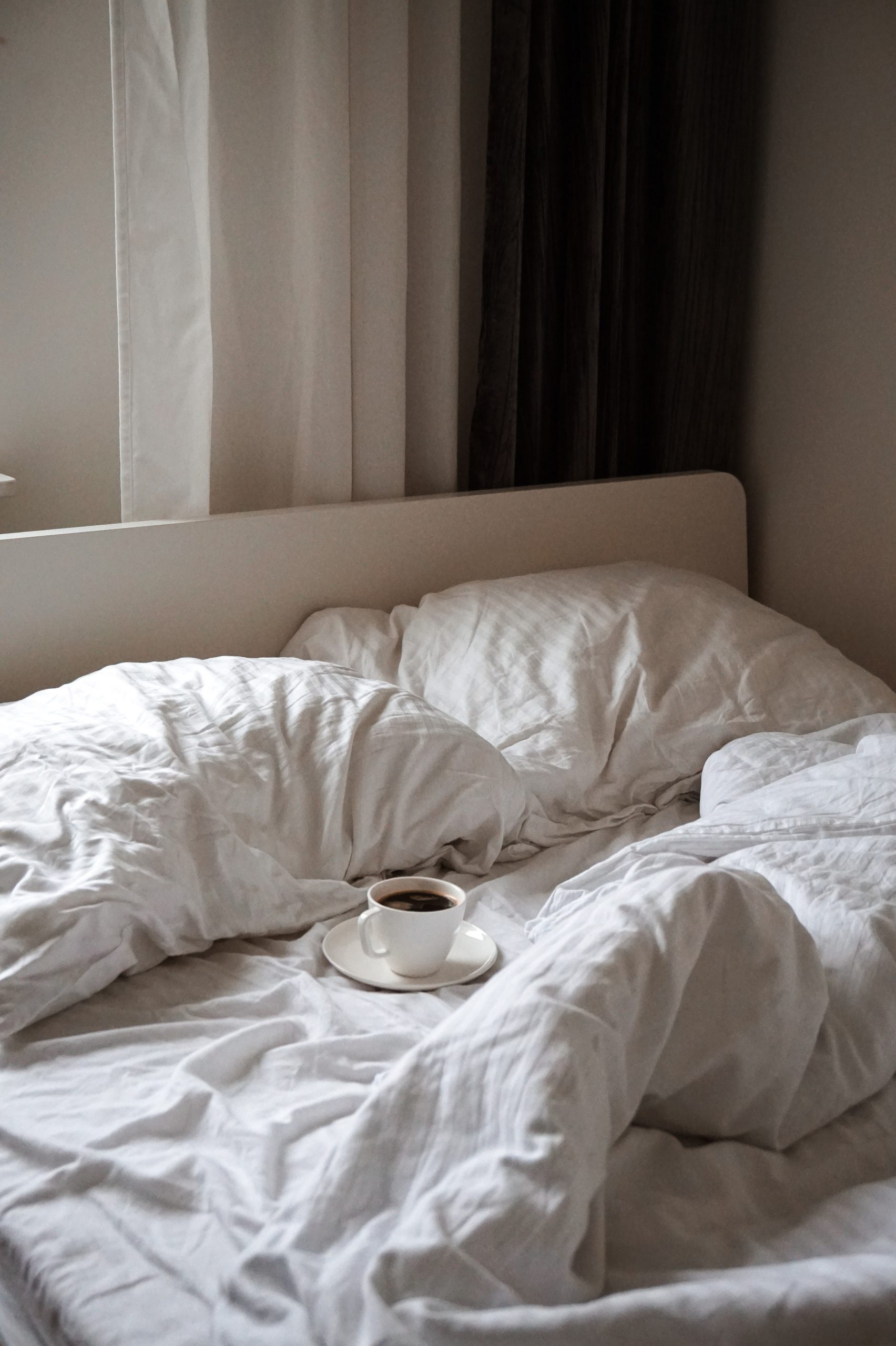14 days in strict quarantine might not sound so bad before it happens to you. It’s appealing to think about all the Netflix you can binge watch while snuggled up in bed all day, and yes, you’ll finally have the chance to read all of those books you’ve been recommended. You can stay in your pyjamas all day if you fancy it, and you can snack to your heart’s content. But these are all one way tickets to destination cabin fever. And for the many people who have been told by authorities that they must isolate (either at home or in a hotel), the mere thought of not stepping foot outside can be enough to drive them stir crazy. So here’s a list of tips to keep sane and healthy during quarantine (and yes, Netflix is allowed).

1: Start slowly. Okay, let’s be honest, no one expects you to spring into productivity on Day 1 of isolation. Today, do exactly what you feel like doing. This might involve staying in bed all day, watching movies and feeling generally lazy. Think of the next 13 days as a bit of a marathon; you will be challenged and you absolutely deserve to wallow (warm-up) for a while before you start the journey
2: Set yourself a daily routine that you can start on Day 2 (or you could start on Day 3 if you are feeling especially depleted). Beware that if you engage in too many unstructured activities (such as long naps, watching episode after episode of Tiger King, scrolling mindlessly through the ‘Gram, or playing video games), you may feel temporarily better but that this is ultimately a recipe for cabin fever. You can find daily planners online or simply use the calendar on your phone. Clinically speaking, we encourage creating a routine for several days in advance, as research proves you’re more likely to stick so something if it’s been planned. Ensure that it includes doing a range of things that you enjoy (yep, insert Tiger King episode here), self-care activities (such as exercise, a bubble bath, a face mask) as well as activities that you may not enjoy so much but that give you a sense of accomplishment (such as learning a new language, keeping a journal, re-organising your pantry). Make sure you also schedule in time to socialise, as this is vital for mental health.

3: It’s not news that exercise has a hugely positive impact on mental health. Get the heart rate up and those endorphins pumping at least once a day, for at least thirty minutes. Even if you have limited space available, there are now plenty of YouTube clips designed to keep fit during isolation, so have a look online. If you’re not big into high intensity, look for a simple yoga tutorial. Or consider putting on a song that makes you want to dance and making a complete fool of yourself (after, all no one can see you, right?).

4: Set a regular wake up and bed time. Try and treat it like a normal day, and not a 14-day-long-weekend. Getting up and going to bed at a reasonable hour sets the tone for our bodies, and prevents us from slipping down the slippery slope of hibernation. For the hour before bedtime avoid engaging in activities that heighten your stress or excitement (get off Facebook). Instead wind-down with a calming routine to help you relax your mind and body (try a meditation, yoga session, listening to music or reading a book).
5: Make an effort to look good. It may seem futile to look good when you may literally see no one, but evidence suggests that if we groom ourselves neatly, and dress as if we are being seen (get out of those puppy dog PJs), productivity will naturally increase. Get showered and change into comfortable clean clothes soon after you wake up. Use deodorant, brush your teeth and shave. As well as showering at least once a day, consider making time for a facial, hair or body treatment (maybe a fake tan or a hair mask) every 2 to 3 days to keep you feeling extra shiny and upbeat.

6: Develop a Care Kit to use when you feel especially depleted, overwhelmed or anxious. Think of it as a cabin fever first aid kit; something you can open up when you’re feeling on edge to soothe you. Perhaps it includes essential oils, photos from a favourite holiday, herbal tea bags, a silk eye-mask. You get the drill; things that involve the five senses.
7: Reach out to others. Yep, you guessed it. Communicate with others at least once a day for thirty minutes. Technology makes it so easy to keep in touch with loved ones during these times. Try to video chat, call, or text with them to maintain human connection, albeit virtual. Perhaps even take on the challenge of meeting or getting to know new people online; there are plenty of others in the same boat as you looking to connect. It’s no surprise that keeping in touch with friends and family, and opening up to them when struggling is one of the single most effective methods of reducing risk of depression.
8: Stay hydrated and eat well. This one may seem obvious, but surprise, surprise, stress and eating often don’t mix well. Some tend to cope with difficult situations by downing whole packets of Tim Tams and Shapes, while others may neglect eating all together. Try and be neither of these people… Set yourself the challenge of drinking 2 litres of water and eating at least a couple of serves of fruit and veg each day (and a Tim Tam for dessert if you haven’t eaten them all).

8: Practice Gratitude. Being confined in a small space for days you are likely to feel frustrated and impatient. While this is completely understandable, see if you can regularly switch your focus to what you have (such as clean water, a safe space, a comfy bed, supportive friends) versus things that you don’t have. Writing down 3 things that you are grateful for every day and why you are grateful for them is a tried and true way to feel generally positive and optimistic. And don’t feel like they have to be hugely profound things either, simply acknowledging gratitude for Netflix, or your comfy pillow will do the trick.
9: Meditating can really help you to feel calmer and more grounded. If you practice regularly, you will find that the benefits will spill over into the rest of your day. There are multiple free or low cost meditation apps online with guided practices that range from 5 to 45 minutes, and are great for beginners (eg. Insight Timer, Smiling Mind, Buddhify). Even simply meditating by deliberately paying attention to your breathing for an extended period can be particularly calming. Slow yoga or Tai Chi are also forms of moving mediation and you will find lots of free classes on YouTube to help get you started.

11: Limit your exposure to corona virus news both on television and on social media. While It’s important to stay up to date and perfectly reasonable to listen to/read a trusted news site (eg. the Covid-19 app https://www.health.gov.au/resources/apps-and-tools/coronavirus-australia-app) up to twice a day, you should beware that over-exposure to the news at this point in time will ultimately lead you to feel more anxious and on-edge.
12: Seek Help. It is perfectly normal to feel unsettled right now but if you feel overwhelmingly anxious or depressed then it is important to reach out to get help. Consider talking to a wise and trusted friend about how you really feel. If you are uncertain about talking to someone you know then contact:
- National Corona Virus Helpline (1800 020 080)
- Lifeline (13 11 14)
And know that Telehealth psychology sessions are available too.
In this unsettling time, we appreciate how difficult it is to be restricted to a small, indoor space. And Netflix and Tim Tam’s really will only get you so far… To all those quarantining, THANK YOU! You are slowing the spread, and we hope this list of tips was helpful in some way.

